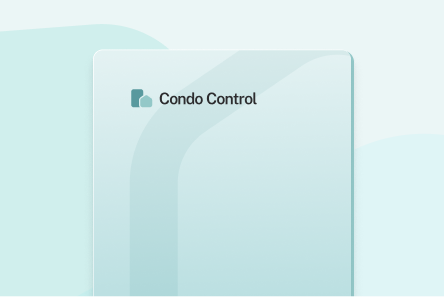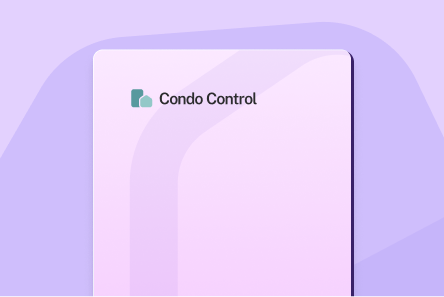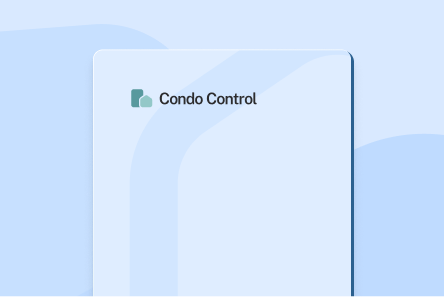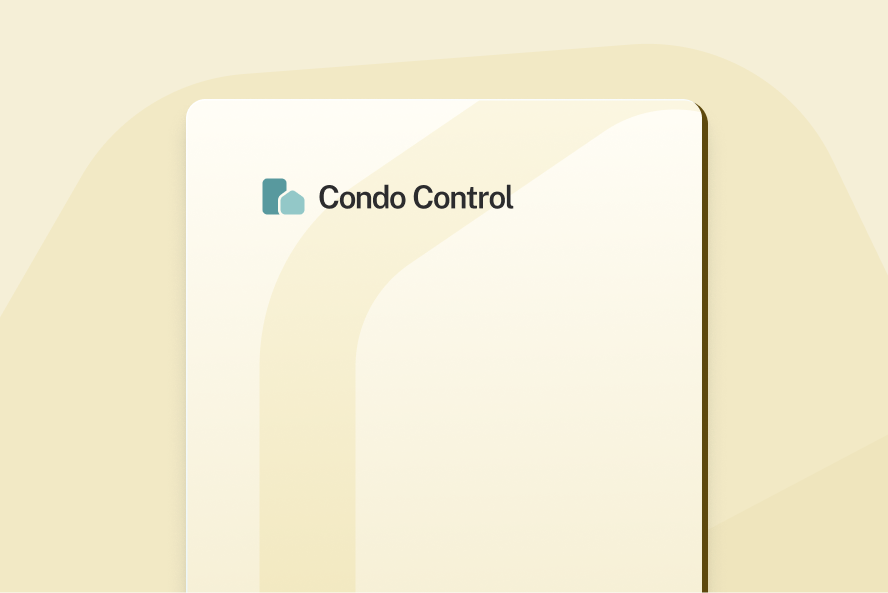“Am I doing this right?” HOA and condo board members are responsible for distributing key documents to members of their community, but many members haven’t been taught how to create a budget or proxy voting form.
Building important documents from scratch can be perplexing, not to mention time-consuming, which is why we’ve designed and published a comprehensive collection of templates that HOA and condo board members can download and use immediately.
These templates help guide busy members who want to ensure the documents and forms they are using for voting, meeting minutes, and finances, align with the requirements of their HOA or condo rules and bylaws.
Members are encouraged to make additions or cut out items that don’t apply to them. Increase productivity and effectively manage your association using our downloadable templates.
Free Downloadable Templates:
Communication
Condo Control has templates that can help board members improve communication, maintain detailed records, sort out finances, and create and enforce bylaws and rules.
In addition to templates, Condo Control has also written detailed articles that offer more information about each form, document or periodical.
Learn how to design newsletters that residents will read
Newsletters are an excellent way to share important messages and broadcast exciting news with the community. However, many HOA and condo associations have found that residents don’t read them.
Don’t let all that hard work go to waste. Our newsletter template offers quick and useful tips on how to craft a newsletter that residents will want to read. Find out how to use colors, fonts, borders, and copy that will attract your readers’ eyes.
The newsletter template can be used for print newsletters, or saved as a PDF and distributed via email. Go green and save money on print costs!
Keep track of board meeting minutes and tasks
Board members have an obligation to keep good notes and records. Not only do comprehensive records increase an association’s ability to complete tasks and goals, residents have a right to see meeting minutes.
Condo Control’s Meeting Agenda and Meeting Minutes templates can be used to keep board members and owners informed and up to date. Share the next meeting agenda with owners so that they know when the open forum is being held. Make it easier to keep track of meeting minutes by preparing a detailed outline ahead of time. The template can also give condo and HOA members ideas on what should be included in their next meeting.
If your board has ever experienced trouble reaching quorum, Condo Control’s Ballot and Proxy Voting Form templates can be used as part of a cost-effective solution. Proxy voting can help ensure a quorum is reached by enabling owners to authorize someone else to vote on their behalf. Delivering the Proxy Voting Form to owners ahead of an important meeting is a simple way to increase voter participation and meeting productivity.
The Ballot Template is simple and customizable, taking the confusion out of voting. Residents should be able to cast their vote with confidence. When the voting process is simplified, participation is likely to be amplified.
Implement a standard system for architectural change requests
Have architectural change request forms ready to go. Get all the required information from applicants on the first try. This standard form ensures consistency and clarity. Once the form has been completed, the board or architectural change committee can review it and let the owner know if they can proceed with the requested change(s).
Be transparent about special assessments
Let’s be honest. No one wants to hear that a special assessment is being levied. However, there are times when this is unavoidable. In these rare situations, the board should always be as transparent with owners as possible.
After a special assessment has been approved, use Condo Control’s Special Assessment Letter to confirm with owners that the association is moving forward with the assessment. Be as detailed as possible. Include the reasons for the special assessment, and be upfront about why the association must levy a special assessment instead of using money from the reserve fund. If applicable, let owners know if there are payment plan options available.
Confidently create an annual budget
Budgeting can be challenging, but it is a key duty of any condo or HOA board. The association’s budget is meant to ensure that it is financially prepared for the year ahead. A poor or incomplete financial budget can lead to significant issues including the inability to maintain or fix elevators, common areas, walls, roofs, etc. However, when done properly, a strong financial budget can set the entire community up for success. Condo Control’s budgeting templates give board members a clear idea of what needs to be included in an annual budget, and how a reserve fund study can help board members make smarter decisions.
Board members can take proactive steps before a financial audit or review by using our Audit Checklist. With this document, they can see if they’ve missed any key items that will be assessed during an audit.
If none of your board members are familiar with creating budgets for condos or HOAs, these resources may prove to be very helpful in managing this crucial task.
Design bylaws and rules that are practical and enforceable
Every community member in your HOA or condo association should be familiar with its bylaws and rules. Without these, residents have no way of knowing what is and what is not permitted.
If policies are not readily available to owners, or if some of the rules or bylaws need to be amended, new documents may be necessary. Board members can use the Rules and Regulations template, or Bylaws template, as a guide to help them create or amend policies that best serve their community. The documents can then be uploaded to the association’s website or software management system, if applicable. This way, all members know exactly where to find their bylaws and rules if they need them. The more informed residents are about the rules, the less likely they are to break them.
When residents don’t follow the rules, it is the board’s responsibility to take action and try to prevent those rules from being broken again. Violations often occur because of negligence or carelessness, and sometimes an informal conversation with a resident is all it takes to correct harmful or disruptive behavior. However, if a resident continues to disobey rules or bylaws, a violation letter should be issued.
Many board members are hesitant about writing and delivering violation letters because they don’t want to add additional conflict to an already tense situation. Our Violation Letter Template can help alleviate some of that uncertainty. Refer to it any time a violation letter must be sent out. The entire process becomes less stressful because board members understand what to say, and how to say it. They complete their fiduciary duty in a responsible manner and preserve the integrity of the board.
Better management leads to happier communities
The primary role of any HOA or condo board is to represent the collective and individual interests of owners and residents, and ensure the community is at its best. Board members are confronted with many challenges and are asked to devote their time and energy to resolving these challenges. The role can be trying, but it can also be very rewarding as it provides an opportunity to contribute to the community and enhance the property.
Board members have a lot on their plate. They want to help create a community that is connected and engaged, but they only have so many hours in the day. Our goal is to make their lives a little bit easier by equipping them with tools and information that will give them the ability to manage and streamline tasks and responsibilities.


























